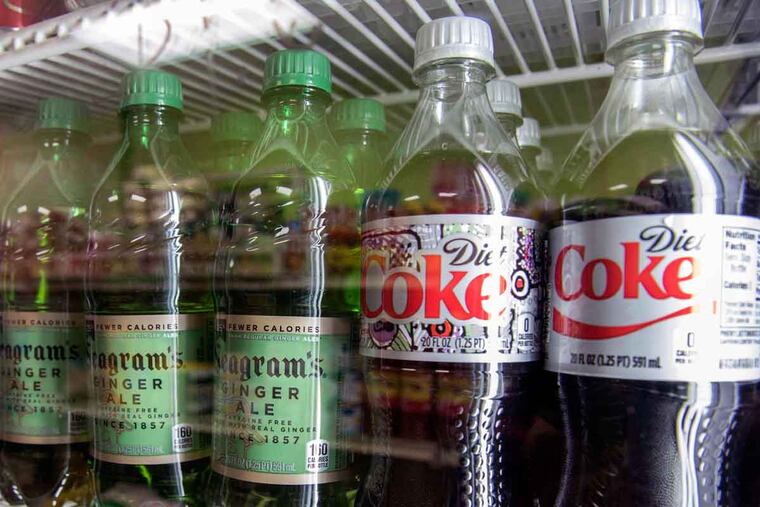Inquirer editorial: Fizzy formula of new soda tax
A funny thing happened on the way to City Council's expected approval of Mayor Kenney's sugary-drinks tax for pre-K: It ceased to be a sugary-drinks tax for pre-K.

A funny thing happened on the way to City Council's expected approval of Mayor Kenney's sugary-drinks tax for pre-K: It ceased to be a sugary-drinks tax for pre-K.
Granted, the city still means to tax sweetened beverages to pay for more prekindergarten. But officials also plan to use the revenue to cover city employee benefits, shore up reserves, and pay for a host of other pet projects and causes, the Inquirer reported this week. Moreover, the tax would expand to encompass diet sodas - drinks that by definition are not sugary.
Is this what the mayor promised? No and yes. It doesn't look entirely like the soak-soda-for-the-kids plan Kenney proposed. But it does look like the renewed effort to collaborate with Council that he campaigned on - with all the horse-trading that tends to entail. The result is imperfect but impressive.
If Council passes the 1.5-cents-an-ounce levy today, it will make Philadelphia the first major city to impose such a tax in the country that gave the world Coca-Cola. As if that weren't unprecedented enough, Council decided to apply the tax to diet sodas in order to spread the burden and compensate for cutting the proposed rate in half, which would make Philadelphia the first American jurisdiction of any kind to tax low-calorie soft drinks.
While experts agree that sugary beverages are stuffing us with superfluous calories, which is what makes them a palatable taxation target, the harms of artificially sweetened beverages are more theoretical. Routine consumption of diet drinks has been associated with poorer health, and experts have hypothesized that they disrupt the body's ability to gauge caloric intake - as well as moralized about their lack of nutritional value and natural ingredients. But research suggesting that they cause health problems, rather than just correlate with them, is hard to come by.
The unorthodox extension of the tax to diet soda is possible partly thanks to the strategy that helped the administration overcome the beverage industry's often disingenuous shock-and-awe campaign against the proposal. Kenney and company shrewdly downplayed the debatable health effects of a beverage levy, focusing instead on the need to raise revenue for the indisputably worthy purpose of early-childhood education.
The dilution of that purpose is the greatest threat to the goodwill Kenney has accrued. Nearly three-quarters of the soda-tax revenue remains destined for the programs the administration said it would fund: prekindergarten education, school-based health and social services (known as "community schools"), and improvements to parks, recreation centers, and libraries. With the revenue going to the city's general fund, though, it remains vulnerable to further diversions of the kind Kenney countenanced to cobble together a Council majority.
Of course, only a naïf would expect such an ambitious proposal to sail through Council unscathed. But the administration should have been more forthright with the public about possible uses of the revenue, and it must guard against letting productive compromise descend into cynical deal-making.
If the tax passes in its current form, Kenney will have taken the first step toward achieving his bold original vision. But given the political intrigue thus far, making his vision a reality will take as much effort or more.